boiling frog
description: a metaphor describing a frog slowly being boiled alive, used to warn about the danger of gradual change
33 results
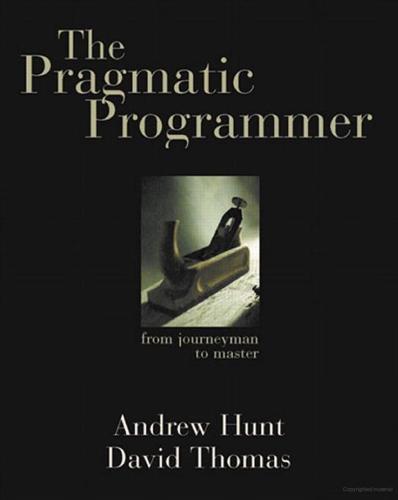
The Pragmatic Programmer
by
Andrew Hunt
and
Dave Thomas
Published 19 Oct 1999
Even if there's a fire raging (deadline, release date, trade show demo, etc.), you don't want to be the first one to make a mess. Related sections include: Stone Soup and Boiled Frogs, page 7 Refactoring, page 184 Pragmatic Teams, page 224 Challenges Help strengthen your team by surveying your computing "neighborhood." Choose two or three "broken windows" and discuss with your colleagues what the problems are and what could be done to fix them. Can you tell when a window first gets broken? What is your reaction? If it was the result of someone else's decision, or a management edict, what can you do about it? 3. Stone Soup and Boiled Frogs The three soldiers returning home from war were hungry.
…
It may tell you that dates will be stored on various forms of secondary storage. These are genuine requirements for a DATE module or class. Just One More Wafer-Thin Mint... Many projects failures are blamed on an increase in scope—also known as feature bloat, creeping featurism, or requirements creep. This is an aspect of the boiled-frog syndrome from Stone Soup and Boiled Frogs, page 7. What can we do to prevent requirements from creeping up on us? In the literature, you will find descriptions of many metrics, such as bugs reported and fixed, defect density, cohesion, coupling, function points, lines of code, and so on. These metrics may be tracked by hand or with software.
…
The team must take responsibility for the quality of the product, supporting developers who understand the no broken windows philosophy we describe in Software Entropy, page 4, and encouraging those who haven't yet discovered it. Some team methodologies have a quality officer—someone to whom the team delegates the responsibility for the quality of the deliverable. This is clearly ridiculous: quality can come only from the individual contributions of all team members. Boiled Frogs Remember the poor frog in the pan of water, back in Stone Soup and Boiled Frogs, page 7? It doesn't notice the gradual change in its environment, and ends up cooked. The same can happen to individuals who aren't vigilant. It can be difficult to keep an eye on your overall environment in the heat of project development. It's even easier for teams as a whole to get boiled.
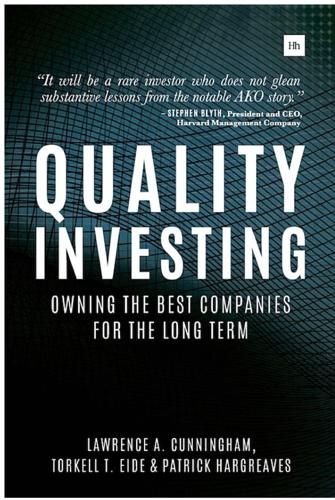
Quality Investing: Owning the Best Companies for the Long Term
by
Torkell T. Eide
,
Lawrence A. Cunningham
and
Patrick Hargreaves
Published 5 Jan 2016
We refer to this as the problem of boiling frogs, referencing the experiments which purported to demonstrate that frogs dropped in boiling water promptly jump out but those placed in cool water whose temperature is gradually raised to boiling remain in the scalding caldron. (We recognize the irony that this premise was subsequently proven to be false.) No company is invincible and we devote considerable effort to monitoring and noticing signs of deterioration to enable us to jump out of the pot before being boiled. In addition to the problem of the boiling frog, the following section discusses mistakes of myopia, rationalization, and developing emotional attachment to investments.
…
Hansen: The Power of Magic Ingredients Ryanair: Low-Cost Squared Hermès: Pricing Power Diageo: Brand Strength Novo Nordisk: Research-Led Innovation Luxottica: Forward Integrator Fielmann: Market Share Gainer Inditex: Global Capabilities Svenska Handelsbanken: Corporate Culture Experian: The Forbidding Costs of Replication Saipem: Long Period Swells Nokia: Fast-Paced Innovation Nobel Biocare: Good-Enough Goods Tesco: Boiling Frog Elekta: Accounting Red Flags About the authors Lawrence A. Cunningham has written a dozen books, including The Essays of Warren Buffett: Lessons for Corporate America, published in successive editions since 1996 in collaboration with the legendary Mr. Buffett; the critically acclaimed Berkshire Beyond Buffett: The Enduring Value of Values (Columbia University Press 2014); and Contracts in the Real World: Stories of Popular Contracts and Why They Matter (Cambridge University Press 2012).
…
In addition to the problem of the boiling frog, the following section discusses mistakes of myopia, rationalization, and developing emotional attachment to investments. Boiling frogs Companies rarely deteriorate from great to good in a single quarter or year, but rather decline gradually over a few years or more. There is seldom a single defining moment when it becomes obvious that a business has gone from high quality to low. In the rare cases when decline is rapid and clear, it is easy to sell as quickly as a frog might jump from boiling water. In most cases, it is necessary to develop a means to discern the gradual decay and, especially, to resist complacency and denial in the face of gathering adversity.
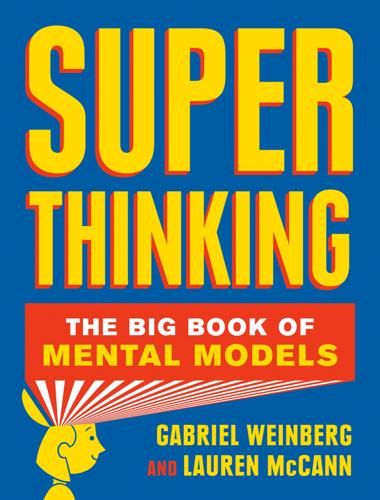
Super Thinking: The Big Book of Mental Models
by
Gabriel Weinberg
and
Lauren McCann
Published 17 Jun 2019
There is a broader class of unintended consequences to similarly watch out for, which also involve making seemingly good short-term decisions that can still add up to a bad outcome in the long term. The mental model often used to describe this class of unintended consequences is called the boiling frog: Suppose a frog jumps into a pot of cold water. Slowly the heat is turned up and up and up, eventually boiling the frog to death. It turns out real frogs generally jump out of the hot water in this situation, but the metaphorical boiling frog persists as a useful mental model describing how a gradual change can be hard to react to, or even perceive. The boiling frog has been used as a cautionary tale in a variety of contexts, from climate change to abusive relationships to the erosion of personal privacy.
…
These mental models are the most useful when thinking about existential risks. After all, in the tale of the boiling frog, the frog dies. Therefore, you want first to assess what substantial harms could arise in the long term, then work backward to assess how your short-term decisions (or lack thereof) might be contributing to long-term negative scenarios (a process that we cover in more depth in Chapter 6). With this knowledge, you can then take the necessary level of precaution, paying down technical debt as needed, happily preventing yourself from becoming the boiling frog. TOO MUCH OF A GOOD THING On the side of an ancient Greek temple, home to the Oracle of Delphi, was inscribed the precept Nothing in excess.
…
The idea comes from writing code: if you prioritize short-term code fixes, or “hacks,” over long-term, well-designed code and processes, then you accumulate debt that will eventually have to be paid down by future code rewrites and refactors. Accumulating technical debt isn’t necessarily harmful—it can help projects move along faster in the short term—but it should be done as a conscientious observer, not as an unaware boiling frog. If you have been involved in any small home repairs, you’re probably familiar with this model. When something small is broken, many people opt for a short-term fix today, DIY-style (or even duct-tape-style), because it is cheaper and faster. However, these “fixes,” which may not be up to building standards, may cost you in the long run.
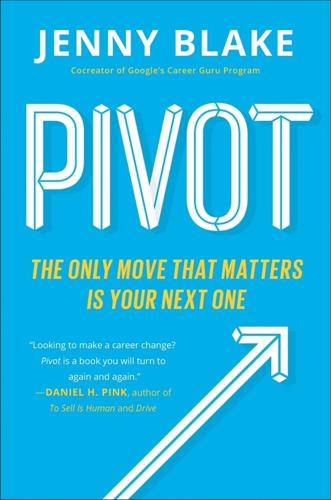
Pivot: The Only Move That Matters Is Your Next One
by
Jenny Blake
Published 14 Jul 2016
But you do not need to read any of the statistics, books, or articles to have a visceral sense of this volatility. “Virtually everything about jobs and work and careers has changed,” said Scott Uhrig, an executive recruiter for technology firms and author of Navigating Successful Job Transitions. “Just like the boiling frog, we may not fully appreciate the magnitude of the change even though we are completely immersed in it.” Perhaps you are currently experiencing this boiling frog feeling in your career—if you have not already jumped out of the pot. Some say the word career itself is dead—a throwback to a bygone era—as we move increasingly toward a project-based economy. Certainly, we can expect to experience significant changes every few years, much more often than was socially acceptable in the past.
…
Diminishing Returns You will have to decide for yourself if you risk leaving crucial unrealized gains behind. On the other hand, sometimes we obsess over these potential gains out of fear or emotional attachment to what feels safe. We clutch at security while ignoring the fact that, like the boiling frog, our surrounding environment is no longer hospitable. In economics, the law of diminishing returns asserts that past a certain point in production, adding more resources will no longer yield favorable results. In fact, every added effort or input yields increasingly lower returns. Melissa Anzman left a job as senior manager of HR communications at a medical device company to launch her own business, Launch Yourself, aimed at helping clients launch books, brands, and career changes.
…
Adams, Tara, 2, 5 adaptability, 232–33 agility, 13, 72 Allen, David, 128 analysis paralysis, 89, 156 Anderson, Marques, 2, 6, 115 antifragile, 25, 238 Anzman, Melissa, 188 assumptions: hypothesis versus, 142 asymmetric upside, 149–50 bartering, 103–4 basketball analogy, 13, 226–27 Beck, Martha, 204 Belsky, Scott, 190–91 Bezos, Jeff, 199 Biali, Susan, 95 Bilanich, Bud, 3, 6 Bisong, Gigi, 156–57 board of advisors, 97–98, 100 body: and Plant stage, 47–49, 52 boiling frog, 188 Bourke, Joanna, 67 bridge income, 79–80, 81, 84, 85 Brilliance Barter, 116–17 Brown, Brené, 114–15, 117, 204 Brynjolfsson, Erik, 119 Build-Measure-Learn feedback loop, 143 Burch, Noel, 109 burn rate, 79 calfee, 101 Campbell, Joseph, 9, 173, 235 career conversations/coaching, 10, 219–21, 223–25, 226–32 career karma, 104–5 career portfolio, 66, 146, 150, 155 Career Roomba Syndrome, 186 careers in age of app and smartphone analogy, 8–9 operating modes for, 23–25 plateaus in, 24, 190–91, 222, 226, 235, 236 Carr, Peter, 180–81 Chaloeicheep, Adam, 2, 5, 50, 51, 102, 131–32 change and duration of pivot, 15 fear of, 8–9, 119 and mindset, 20, 22, 23 as opportunity, 20, 22 childhood interests, 67–68 Chödrön, Pema, 10 Clark, Dorie, 126 Clow, Julie, 3, 6–7, 127, 224 collective brainpower, 94 Colvin, Geoff, 120 combinatory play and hobbies, 110–11 comfort zone, 27–28, 47, 60, 89, 111, 118, 158, 194, 197, 238 complexity, 235–39 connecting the dots, and looking backward, 10–13 Connolly, Bill, 47, 147 continuous pivot, 211–12 Cotton, Becky, 187–88, 220, 221 courage: and Launch stage, 173–95 Covey, Stephen R., 39 Dahl, Marisol, 154–55 Danckert, James, 20 Danylchuk, Lisa, 105 date-based timing, 174, 176–78 Deaton, Angus, 19 decision fatigue (ego depletion), 49–50, 52 decision to launch, 172, 174-82, 185, 209 as separate from difficult conversations, 205–6 Decision Tracker (exercise), 166 Decoda, Tara, 181–82 Deffley, Andrew, 75, 76, 98, 99 difficult conversations, 205–6 diminishing returns, 186, 188–91 discoverable, 89–90, 123–37 Dizon, Melani, 145 Doucette, Elisa, 102, 158 Downing effect (illusory superiority), 118 drafting, career, 98–99 “Drop the Bucket” game, 114 Durand, Kyle, 2, 6, 22, 155 Dweck, Carol, 19, 20 entrepreneurs: mindset of, 17 exercise(s) linear logic, 113 listening, 117–18 meditation, 51–52 mentor, 96–97 Pivot Hexagon, 185 platform, 128–29 skills/expertise, 108 “sliding-doors” careers, 59–60 strengths, 68, 70, 128–29 success, 58–59 30-Day Decision Tracker, 166 values mining, 41–45 vision, 57–62 Zone of Genius, 70 experts, 126–27, 128–29.
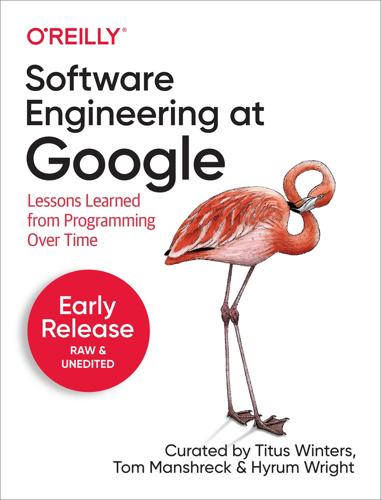
Software Engineering at Google: Lessons Learned From Programming Over Time
by
Titus Winters
,
Tom Manshreck
and
Hyrum Wright
Published 17 Mar 2020
Hyrum’s Law: With a sufficient number of users of an API, it does not matter what you promise in the contract: all observable behaviors of your system will be depended on by somebody. Every task your organization has to do repeatedly should be scalable (linear or better) in terms of human input. Policies are a wonderful tool for making process scalable. Process inefficiencies and other software-development tasks tend to scale up slowly. Be careful about boiled frog problems. Expertise pays off particularly well when combined with economies of scale. “Because I said so” is a terrible reason to do things. Being “data driven” is a good start, but in reality most decisions are based on a mix of data, assumption, precedent, and argument. It’s best when objective data makes up the majority of those inputs, but it can rarely be all of them.
…
Somewhere between 5-10 years seems like a conservative estimate for this transition in general. 7 To his credit: Hyrum tried really hard to humbly call this “The Law of Implicit Dependencies,” but “Hyrum’s Law” is the shorthand that most people at Google have settled on. 8 “Workflow”, http://xkcd.com/1172/ 9 A type of DoS attack in which an untrusted user knows the structure of a hash table and the hash function and provides data in such a way as to degrade the algorithmic performance of operations on the table. 10 “The Heartbleed Bug” http://heartbleed.com/ 11 “Meltdown and Spectre” https://meltdownattack.com/ 12 Site Reliability Engineering: How Google Runs Production Systems, O’Reilly Media, April 2016, Betsy Beyer, Chris Jones, Jennifer Petoff, Niall Richard Murphy 13 Whenever we use “scalable” in an informal context in this chapter, we mean “sublinear scaling wrt. human interactions.” 14 https://en.wikipedia.org/wiki/Boiling_frog#As_metaphor 15 This is a reference to the popular song “Single Ladies” which includes the refrain “If you liked it then you shoulda put a ring on it.” 16 Specifically: interfaces from the C++ standard library needed to be referred to in namespace std, and an optimization change for std::string turned out to be a significant pessimization for our usage, thus requiring some additional workarounds. 17 Ibid.
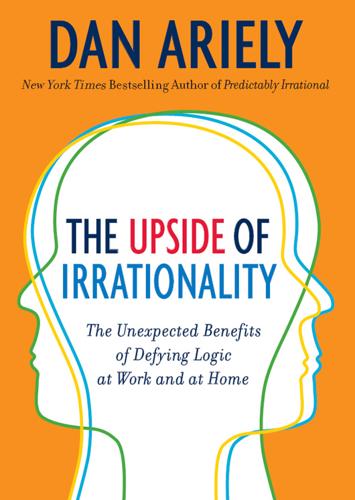
The Upside of Irrationality: The Unexpected Benefits of Defying Logic at Work and at Home
by
Dan Ariely
Published 31 May 2010
Now, if you slowly increase the temperature, the frog will stay put as it acclimates to the rising change in temperature. And if you continue to turn up the heat, the frog will eventually boil to death. I can’t say for sure if this frog experiment works since I’ve never tried it (and I suspect the frog would, indeed, jump out), yet the boiling-frog story is the quintessence of the principle of adaptation. The general premise is that all creatures, including humans, can get used to almost anything over time. The frog story is usually used pejoratively. Al Gore has found it a handy analogy for pointing out people’s ignorance about the effects of global warming.
…
Business and marketing people use it to illustrate the point that changes in products, services, and policies—such as price increases—must be gradual, so that customers have time to adjust to them (preferably without noticing). This analogy to adaptation is so common, in fact, that James Fallows of The Atlantic argued, in a Web column called “Boiled-frog Archives,” that “Frogs have a hard enough time as it is, what with diminishing swampland and polluted waters. Political rhetoric has its problems too. For the frogs’ sake, and that of less-idiotic public discourse, let’s retire this stupid canard, or grenouille.”15 In fact, frogs are remarkably adaptive.
…
A Accessory Transit Company, 154 acknowledging workers, 74–76, 80 acronyms, 120 adaptation, 157–90 assortative mating and, 191–212; see also assortative mating focusing attention on changes and, 159–60 hedonic, 160–84; see also hedonic adaptation nineteenth-century experiments on, 157–58 to pain, 160–67 physical, 157–60, 161n sensory perception and, 158–60 Aesop, 198–99 agriculture, obesity and technological developments in, 8 AIDS, 250, 251 airlines, customer service problems of, 142–43 alienation of labor, 79–80 American Cancer Society (ACS), 241–42, 249–50, 254 Andrade, Eduardo, 262, 265, 267–68, 299 anger, acting on, 257 author��s anecdote of, 258–61 driving and, 261 ultimatum game and, 268, 269–70, 273, 274, 276 animals: empathy for suffering of, 249 generalizing about human behavior from studies on, 63 working for food preferred by, 59–63 annoying experiences: breaking up, 177–79, 180 decisions far into future affected by, 262–64 annuities, 234 anterior insula, 266–67 anticipatory anxiety, 45 Anzio, Italy, battle of (1944), 167 apathy toward large tragedies, 238–39 drop-in-the-bucket effect and, 244–45, 252, 254–55 statistical condition and, 238–41, 242, 246, 247–49, 252–53 apologies, 149–51 for medical errors, 152 Apple, 120n battery replacement issue and, 141–42 art, homemade, 89–90 Asian tsunami, 250, 251 assembly line, 78–79 assortative mating, 191–212 altering aesthetic perception and (sour grapes theory), 198–99, 200, 201, 203 author’s injuries and, 191–96, 210–11 dinner party game and, 198 failure to adapt and, 200–201, 203–5 gender differences and, 209, 211 HOT or NOT study and, 201–5, 208, 211 reconsidering rank of attributes and, 199–200, 201, 205–10 speed-dating experiment and, 205–10 Atchison, Shane, 140–41, 146 attachment: to one’s own ideas, see Not-Invented-Here (NIH) bias to self-made goods, see IKEA effect attractiveness, assortative mating and, 191–212 see also assortative mating auctions, first-price vs. second-price, 98–99 Audi customer service, author’s experience with, 131–36, 137, 149, 153–54 experimental situation analogous to, 135–39 fictional case study for Harvard Business Review based on, 147–49 B bailout, public outrage felt in response to, 128–31 baking mixes, instant, 85–87 bankers: author’s presentation of research findings to, 107–9, 121 bonus experiments and, 38–41, 51 Frank’s address to, 41 public outrage in response to bailout and, 128–31 bankruptcy, 129, 130 Barkan, Racheli, 39, 109–10, 299 basketball, clutch players in, 39–41 beauty: assortative mating and, 196–212; see also assortative mating general agreement on standard of, 203 Becker-DeGroot-Marschak procedure, 91 Beecher, Henry, 167 behavioral economics: goal of, 9–10 human rationality not assumed in, 6–7 revenge as metaphor for, 124n Betty Crocker, 87 Bible, Gideon’s conversation with God in, 288–89 blindness, adaptation to, 172–74 blogging, 65 Blunder (Shore), 117 boiling-frog experiment, 157–58 bonuses, 17–52 bank executives’ responses to research on, 37–39 clutch abilities and, 39–41 for cognitive vs. mechanical tasks, 33–36, 40–41 creativity improvements and, 47–48 experiments testing effectiveness of, 21–36, 44–46 Frank’s remarks on, 41 intuitions about, 36–37 inverse-U relationship between performance and, 20–21, 47 loss aversion and, 32–33 optimizing efficacy of, 51–52 public rage over, 21 rational economists’ view of, 36–37 social pressure and, 44–46 surgery situation and, 48–49 viewed as standard part of compensation, 33 in wake of financial meltdown of 2008, 131 brain: judgments about experiences and, 228–29 punishment and, 126 breaks, in pleasant vs. painful experiences, 177–81 Brickman, Philip, 170 business, experimental approach to, 292–93 C cake mixes, instant, 85–87 California, moving to, 176 Call, Josep, 127 cancer, American Cancer Society fundraising and, 241–42, 249–50, 254 canoeing, romantic relationships and, 278–79 cars, 215–16 designing one’s own, 88, 89 division of labor in manufacture of, 78–79 in early days of automotive industry, 94 hedonic treadmill and, 175 see also driving cell phones, 7 in experiments on customer revenge, 135–39, 145–46, 150–51 see also texting CEOs, very high salaries and bonuses paid to, 21 Chance, Zoë, 220, 300 changes: ability to focus attention on, 159–60 decisions about life’s path and, 287 in future, foreseeing adaptation to, 160, 171–74 status quo bias and, 285, 286 in workers’ pay, job satisfaction and, 169–70 charities: American Cancer Society (ACS), 241–42, 249–50, 254 calculating vs. emotional priming and, 246–48 emotional appeals and, 240–42, 248–50, 253–54, 256 identifiable victim effect and, 239–42, 248, 256 charities (cont.)
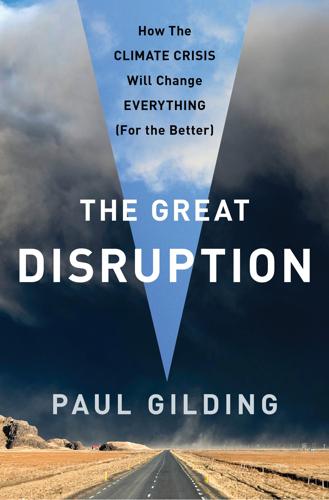
The Great Disruption: Why the Climate Crisis Will Bring on the End of Shopping and the Birth of a New World
by
Paul Gilding
Published 28 Mar 2011
Ironically, it’s just this point—that the situation is going to be really, really bad—that gives me such confidence that it will turn, and the social dynamic referred to above, combined with the enormous back pressure behind the dam, means there’s going to be a flood when it does. I call what is coming the Great Awakening, a term I first heard used in this context by Professor Jorgen Randers. Let me start explaining this from the point of the counterargument, generally referred to as “the boiling frog problem.” This refers to the idea that a frog put into boiling water will jump out, whereas a frog put into cold water that is then slowly heated will stay there and boil to death.2 Some people argue that as humanity slowly slides toward disaster, we’ll stay in ever more fanciful denial until it is too late and we are overwhelmed—that we will slowly boil to death.
…
Third, we will be capable physically and technically of turning the situation around at that point, because that point will be soon, and we are capable, when the alternative is collapse, of making an absolutely remarkable turnaround. This last point is key, because people won’t end denial until they believe there is a solution. Let me go through each of these in a little more detail. First, we are not boiling frogs and will not stand by observing our decline. The reason I am so sure about this is that the momentum for change we have built into the earth’s climate system is like a fast-moving heavy train hurtling toward us. We are standing on the train line, in heavy fog. The fog will lift, or the train will be so close we can see it and feel it, even in the fog.
…
Indeed, while I’ve been writing this book, some argue the tide is going firmly the other way. The Copenhagen Conference failed to deliver tangible progress, the science has been under attack again, opinion polls are going the wrong way, and there is little evidence that governments will translate widespread and genuine concern and understanding into real action. The boiling frog is indeed getting hot! So why am I so confident the world will respond and that when it does, it won’t be too late? I answered the first question in the last chapter, but the second question needs a more detailed response—will it then be too late? This question has been the focus of a great deal of my research over recent years.
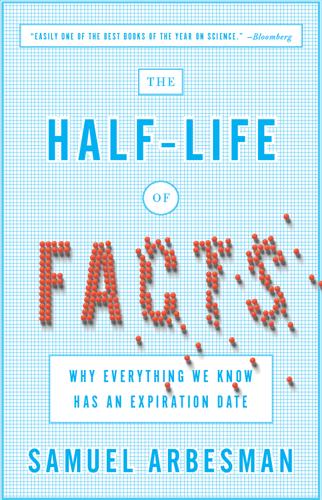
The Half-Life of Facts: Why Everything We Know Has an Expiration Date
by
Samuel Arbesman
Published 31 Aug 2012
“String Theory and the Vacuum Structure of Confining Gauge Theories.” PhD dissertation. University of Southern California, 2004. 86 These errors “will live on and on”: Mauboussin, See For Yourself. 86 I was taken to task soon after by James Fallows: Fallows, James. “Boiled Frog Does a Surreal Meta-Backflip.” The Atlantic, March 2, 2010. http://www.theatlantic.com/technology/archive/2010/03/boiled-frog-does-a-surreal-meta-backflip/36934/. 90 research that quantitatively studied the differences: Barbrook, Adrian C. et al. “The Phylogeny of The Canterbury Tales.” Nature 394, no. 6696 (August 27, 1998): 839. 91 actually measured: Among others, here are a couple of their papers: Simkin, M.
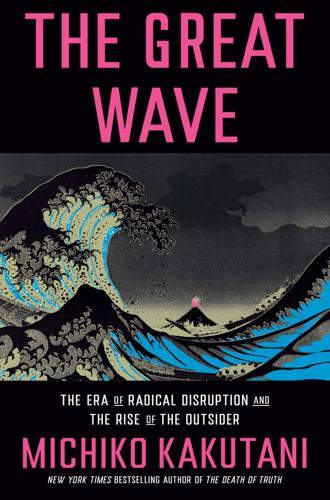
The Great Wave: The Era of Radical Disruption and the Rise of the Outsider
by
Michiko Kakutani
Published 20 Feb 2024
The work of countless grassroots groups in coordinating worldwide climate protests, the role that organizations like Extinction Rebellion and the Sunrise Movement have played in raising public awareness, and the high-profile voices of young activists like Greta Thunberg—all have been credited with helping to make the climate crisis a priority in mainstream politics and increasing the vote share of Green Party candidates in European elections. The downside of the Overton window resembles old slippery slope arguments; that is, a series of incremental steps can lead to disaster, as people gradually become used to something thoroughly treacherous. It’s a version of the famous boiled frog parable. The parable that goes like this: If you put a frog in a pot of boiling water, it will immediately jump out. But if you put the frog in a pot of room temperature water and slowly heat it to boiling, the frog won’t notice and will slowly cook to death. The parable, it turns out, isn’t true about frogs, who, as the water becomes hot, will quickly leap out if they can.
…
GO TO NOTE REFERENCE IN TEXT “For anyone out there who is involved”: Francesca Willow, “What Is the Overton Window & Why It Matters for Climate Justice Activism,” Ethical Unicorn, June 11, 2022, ethicalunicorn.com/2022/06/11/what-is-the-overton-window-why-it-matters-for-climate-justice-activism. GO TO NOTE REFERENCE IN TEXT The parable, it turns out, isn’t true: Whit Gibbons, “The Legend of the Boiling Frog Is Just a Legend,” Savannah River Ecology Laboratory, University of Georgia, Dec. 23, 2007, archive-srel.uga.edu/outreach/ecoviews/ecoview071223.htm. GO TO NOTE REFERENCE IN TEXT “We estimate that it takes five years”: Nick Obradovich and Frances C. Moore, “The Data Is In.
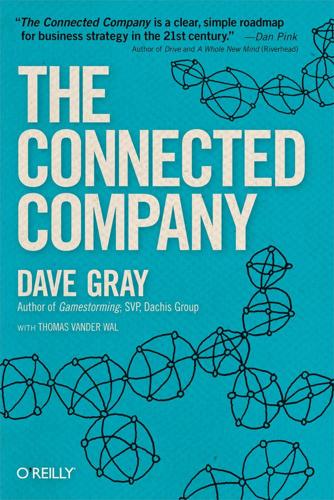
The Connected Company
by
Dave Gray
and
Thomas Vander Wal
Published 2 Dec 2014
But what can you do on Monday morning to begin your company’s transformation? How can you get from here to there? It Won’t be Easy The problem for many companies is that when customers and the market change gradually, it’s easy to live in denial, especially when a company is large and has been successful in the past. Some people call this the boiled frog effect, based on a metaphorical story about a frog in a pot of water. If the water is heated up slowly enough, the story goes, the frog will not notice the gradual, incremental increase in heat, and it will stay in the pot, slowly boiling to death. It’s very difficult for a company to reinvent its core architecture.
…
, How IBM Rediscovered Customers, How Profits Can Destroy Your Company American International Group (AIG), Too Much Autonomy–Failure to Invest in the Platform, Failure to Invest in the Platform ant colony, Strategy by Discovery AOL (company), The Platform Ashby’s Law, The Law of Requisite Variety Asplund, Jim, Promoters and Detractors ATM revolt (Bank of America), The ATM Revolt attractors, Attractors, Attractors attrition warfare, Three Types of Strategy authoritarian power structure, People Resist Being Controlled Autodesk software company, Disrupting Desktop Software at Autodesk–Network Weaving, Network Weaving automobiles, Urbanization–Urbanization, Urbanization, Urbanization, Urbanization, Urbanization, Urbanization self-driving cars, Urbanization services for, Urbanization urban populations and, Urbanization–Urbanization, Urbanization, Urbanization, Urbanization avatars, A Product is a Service Avatar products as, A Product is a Service Avatar B back stage, Front Stage and Back Stage–Balancing the Front Stage and the Back Stage, Balancing the Front Stage and the Back Stage–Making Platform Decisions, Balancing the Front Stage and the Back Stage, Balancing the Front Stage and the Back Stage, Making Platform Decisions about, Front Stage and Back Stage–Balancing the Front Stage and the Back Stage, Balancing the Front Stage and the Back Stage balancing with front stage, Balancing the Front Stage and the Back Stage–Making Platform Decisions, Balancing the Front Stage and the Back Stage, Making Platform Decisions Bain & Company, Promoters and Detractors, The Net Promoter Score Bank of America, The ATM Revolt Barabás, Albert-László, Scale-free Networks Basecamp application, You don’t have to be Big Bass, Carl, Disrupting Desktop Software at Autodesk Beer, Stafford, Purpose Sets the Context for Organizations to Learn behaviorist philosophy, The Company as a Machine Beinhocker, Eric D., Let a Thousand Flowers Bloom Best Buy (company), Whole Foods, an Agile Team of Agile Teams betweenness measure in networks, Power in Networks–Control, Control, Control Bezos, Jeff, Products as Job Descriptions, Amazon is Podular–A Podular System Trades Flexibility for Consistency, Amazon is Podular, Amazon is Podular, A Podular System Trades Flexibility for Consistency, Level One: How Entrepreneurs Learn, Balancing the Front Stage and the Back Stage, Small Bets: Set a Low Bar for Initial Experimentation, Moral Authority, Attractors Amazon and, Amazon is Podular–A Podular System Trades Flexibility for Consistency, Amazon is Podular, Amazon is Podular, A Podular System Trades Flexibility for Consistency appreciation shown by, Attractors as entrepreneur, Level One: How Entrepreneurs Learn moral authority and, Moral Authority on innovation, Small Bets: Set a Low Bar for Initial Experimentation on Kindle, Products as Job Descriptions on Zappos, Balancing the Front Stage and the Back Stage blind alleys, Small Bets: Set a Low Bar for Initial Experimentation blitzkrieg, Three Types of Strategy boiled frog effect, It Won’t be Easy boundary-setting in companies, Balance the Individual Freedom with the Common Good Boyd, John, Three Types of Strategy, Moral Authority, Customers First Brand, Stuart, Pace Layers Branson, Richard, Level One: How Entrepreneurs Learn Brickhouse innovation studio, Failure to Invest in the Platform Brogan, Chris, Network Weaving brokerage, defined, Small Worlds Brown, John Seely, Return on Assets is Dwindling Building Collaboration Services, Disrupting Desktop Software at Autodesk Bureau of Labor Statistics, Urbanization Burger King (company), Adaptive Moves Can Create Opportunities for Others Burt, Ron, Small Worlds Buzzsaw (company), Disrupting Desktop Software at Autodesk C Carlzon, Jan, Moments of Truth Carroll, Dave, Cascading Effects Can be Initiated by Customers–Cascading Effects Can be Initiated by Senior Executives, Cascading Effects Can be Initiated by Customers, Cascading Effects Can be Initiated by Senior Executives Carroll, Lewis, The Red Queen Race Castain, Eric, Be Connectable to Everything Channel Marketing Corp, Big Bets: The Responsibility of Senior Leaders chaos monkey, Netflix, a City of Services Christensen, Clayton, Purpose Sets the Context for Organizations to Learn Christian, Kristen, The ATM Revolt cities, Complex Adaptive Systems–The Long-lived Company, Complex Adaptive Systems, The Long-lived Company, What is a Platform?
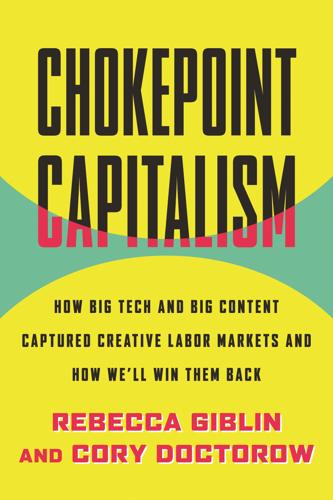
Chokepoint Capitalism
by
Rebecca Giblin
and
Cory Doctorow
Published 26 Sep 2022
Tepper and Hearn, The Myth of Capitalism, 108–9. 52. Ian Hathaway, “Platform Giants and Venture-Backed Startups,” Oct. 12, 2018, http://www.ianhathaway.org/blog/2018/10/12/platform-giants-and-venture-backed-startups. 53. James Fallows, “The Boiled-Frog Myth: Stop the Lying Now!” The Atlantic, Sept. 16, 2006, https://www.theatlantic.com/technology/archive/2006/09/the-boiled-frog-myth-stop-the-lying-now/7446. 54. If this horrifies or fascinates you, check out Andrea Matwyshyn’s “The Internet of Bodies,” which analyzes the way the integrity and functionality of human bodies increasingly relies on the internet and other digital technologies.
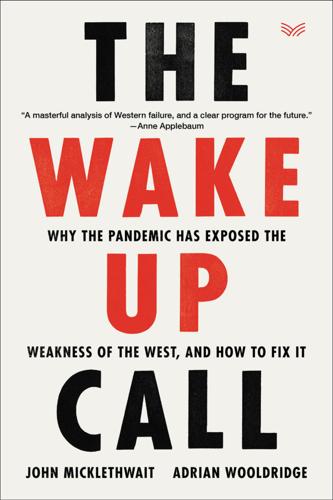
The Wake-Up Call: Why the Pandemic Has Exposed the Weakness of the West, and How to Fix It
by
John Micklethwait
and
Adrian Wooldridge
Published 1 Sep 2020
Just as the Chinese emperor assumed Lord Macartney had nothing to show him, even when Britain was racing ahead, Washington seldom copies what works abroad. It has been talking about using Germany’s system of technical training for generations; under Barack Obama, it flirted with copying Sweden’s entitlement reforms. Like the proverbial boiling frog, the federal government may not discover how hot the water is until it is poured into a Chinese wok. We sent Bill Lincoln to reform America, but you can apply the same thought experiment to any Western capital. If for instance he had been reborn as a Briton and installed in Downing Street, he would do some of the same things.
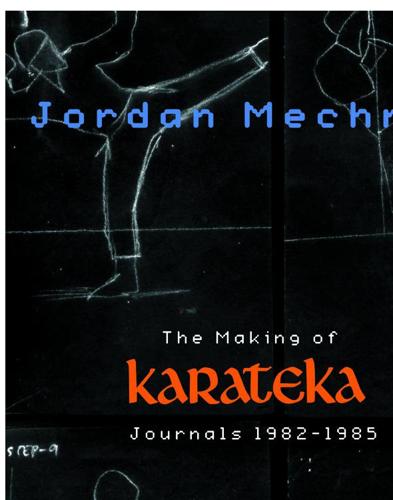
The Making of Karateka: Journals 1982-1985
by
Jordan Mechner
Published 26 Dec 2012
Started programming a new game tonight (an easy one): the number-matching game from that guy’s wristwatch at Papi’s birthday party at the Coopers’. It’s so irritating: I can’t get it to work right, it’s so simple, I’ve been over it a hundred times and all the parts work, but the whole doesn’t. Also, last night falling asleep I thought of a really new game idea: The Ten Plagues. Locusts, boils, frogs, hail. You’re Pharaoh, trying to hold them off. In the end, of course, there’s no way to win, as in any Galaxian-type game. Considering using the ALF for a soundtrack. The music? Handel’s Plagues, of course! (“He spake the word…”) It’d be quite an ambitious project, even more so than Revenge.
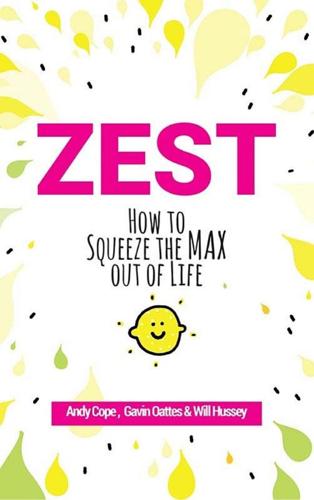
Zest: How to Squeeze the Max Out of Life
by
Andy Cope
,
Gavin Oattes
and
Will Hussey
Published 19 Jul 2019
Not tapping off with next door’s wife, avoid killing people, stealing is bad – these are inarguably great rules for maintaining the neighbourhood peace and staying out of prison. We’re not saying we’ve outdone Moses. That’d be stupid, right? If we out-commanded his commandments he’d be sure to send boils, frogs or locusts and we don’t want to risk any of that nonsense. So we’ve updated the list. Ours isn’t a list to abide by. It’s not a list of things you need to do, it’s 10 things that, in today’s world, just are. Our plan is to drop them in and then revisit them later. All of them. Onwards … Kool Rule 1 – You will receive a body Look in the mirror.
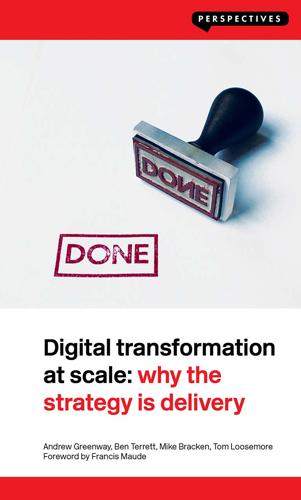
Digital Transformation at Scale: Why the Strategy Is Delivery
by
Andrew Greenway,Ben Terrett,Mike Bracken,Tom Loosemore
Published 18 Jun 2018
Use the strategy to give others support or cover for positive things they are trying to do in their own department. * * * 48 http://www.bbc.co.uk/news/entertainment-arts-22164715 49 This is how a ‘digital strategy’ is broadly defined by GCHQ (of all places), in their excellent paper Boiling Frogs. It is available on Github at https://github.com/gchq/BoilingFrogs Chapter 9 Running the numbers How many services do you, as an entire organisation or central government, offer to users or to citizens and businesses? Take a guess. Fifty? A couple of hundred? Several thousand? You probably don’t know.
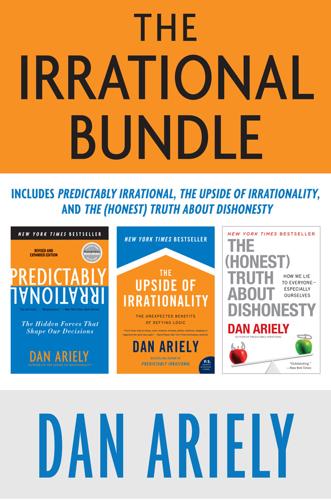
The Irrational Bundle
by
Dan Ariely
Published 3 Apr 2013
Now, if you slowly increase the temperature, the frog will stay put as it acclimates to the rising change in temperature. And if you continue to turn up the heat, the frog will eventually boil to death. I can’t say for sure if this frog experiment works since I’ve never tried it (and I suspect the frog would, indeed, jump out), yet the boiling-frog story is the quintessence of the principle of adaptation. The general premise is that all creatures, including humans, can get used to almost anything over time. The frog story is usually used pejoratively. Al Gore has found it a handy analogy for pointing out people’s ignorance about the effects of global warming.
…
Business and marketing people use it to illustrate the point that changes in products, services, and policies—such as price increases—must be gradual, so that customers have time to adjust to them (preferably without noticing). This analogy to adaptation is so common, in fact, that James Fallows of The Atlantic argued, in a Web column called “Boiled-frog Archives,” that “Frogs have a hard enough time as it is, what with diminishing swampland and polluted waters. Political rhetoric has its problems too. For the frogs’ sake, and that of less-idiotic public discourse, let’s retire this stupid canard, or grenouille.”15 In fact, frogs are remarkably adaptive.
…
A Accessory Transit Company, 154 acknowledging workers, 74–76, 80 acronyms, 120 adaptation, 157–90 assortative mating and, 191–212; see also assortative mating focusing attention on changes and, 159–60 hedonic, 160–84; see also hedonic adaptation nineteenth-century experiments on, 157–58 to pain, 160–67 physical, 157–60, 161n sensory perception and, 158–60 Aesop, 198–99 agriculture, obesity and technological developments in, 8 AIDS, 250, 251 airlines, customer service problems of, 142–43 alienation of labor, 79–80 American Cancer Society (ACS), 241–42, 249–50, 254 Andrade, Eduardo, 262, 265, 267–68, 299 anger, acting on, 257 author’s anecdote of, 258–61 driving and, 261 ultimatum game and, 268, 269–70, 273, 274, 276 animals: empathy for suffering of, 249 generalizing about human behavior from studies on, 63 working for food preferred by, 59–63 annoying experiences: breaking up, 177–79, 180 decisions far into future affected by, 262–64 annuities, 234 anterior insula, 266–67 anticipatory anxiety, 45 Anzio, Italy, battle of (1944), 167 apathy toward large tragedies, 238–39 drop-in-the-bucket effect and, 244–45, 252, 254–55 statistical condition and, 238–41, 242, 246, 247–49, 252–53 apologies, 149–51 for medical errors, 152 Apple, 120n battery replacement issue and, 141–42 art, homemade, 89–90 Asian tsunami, 250, 251 assembly line, 78–79 assortative mating, 191–212 altering aesthetic perception and (sour grapes theory), 198–99, 200, 201, 203 author’s injuries and, 191–96, 210–11 dinner party game and, 198 failure to adapt and, 200–201, 203–5 gender differences and, 209, 211 HOT or NOT study and, 201–5, 208, 211 reconsidering rank of attributes and, 199–200, 201, 205–10 speed-dating experiment and, 205–10 Atchison, Shane, 140–41, 146 attachment: to one’s own ideas, see Not-Invented-Here (NIH) bias to self-made goods, see IKEA effect attractiveness, assortative mating and, 191–212 see also assortative mating auctions, first-price vs. second-price, 98–99 Audi customer service, author’s experience with, 131–36, 137, 149, 153–54 experimental situation analogous to, 135–39 fictional case study for Harvard Business Review based on, 147–49 B bailout, public outrage felt in response to, 128–31 baking mixes, instant, 85–87 bankers: author’s presentation of research findings to, 107–9, 121 bonus experiments and, 38–41, 51 Frank’s address to, 41 public outrage in response to bailout and, 128–31 bankruptcy, 129, 130 Barkan, Racheli, 39, 109–10, 299 basketball, clutch players in, 39–41 beauty: assortative mating and, 196–212; see also assortative mating general agreement on standard of, 203 Becker-DeGroot-Marschak procedure, 91 Beecher, Henry, 167 behavioral economics: goal of, 9–10 human rationality not assumed in, 6–7 revenge as metaphor for, 124n Betty Crocker, 87 Bible, Gideon’s conversation with God in, 288–89 blindness, adaptation to, 172–74 blogging, 65 Blunder (Shore), 117 boiling-frog experiment, 157–58 bonuses, 17–52 bank executives’ responses to research on, 37–39 clutch abilities and, 39–41 for cognitive vs. mechanical tasks, 33–36, 40–41 creativity improvements and, 47–48 experiments testing effectiveness of, 21–36, 44–46 Frank’s remarks on, 41 intuitions about, 36–37 inverse-U relationship between performance and, 20–21, 47 loss aversion and, 32–33 optimizing efficacy of, 51–52 public rage over, 21 rational economists’ view of, 36–37 social pressure and, 44–46 surgery situation and, 48–49 viewed as standard part of compensation, 33 in wake of financial meltdown of 2008, 131 brain: judgments about experiences and, 228–29 punishment and, 126 breaks, in pleasant vs. painful experiences, 177–81 Brickman, Philip, 170 business, experimental approach to, 292–93 C cake mixes, instant, 85–87 California, moving to, 176 Call, Josep, 127 cancer, American Cancer Society fundraising and, 241–42, 249–50, 254 canoeing, romantic relationships and, 278–79 cars, 215–16 designing one’s own, 88, 89 division of labor in manufacture of, 78–79 in early days of automotive industry, 94 hedonic treadmill and, 175 see also driving cell phones, 7 in experiments on customer revenge, 135–39, 145–46, 150–51 see also texting CEOs, very high salaries and bonuses paid to, 21 Chance, Zoë, 220, 300 changes: ability to focus attention on, 159–60 decisions about life’s path and, 287 in future, foreseeing adaptation to, 160, 171–74 status quo bias and, 285, 286 in workers’ pay, job satisfaction and, 169–70 charities: American Cancer Society (ACS), 241–42, 249–50, 254 calculating vs. emotional priming and, 246–48 emotional appeals and, 240–42, 248–50, 253–54, 256 identifiable victim effect and, 239–42, 248, 256 charities (cont.)
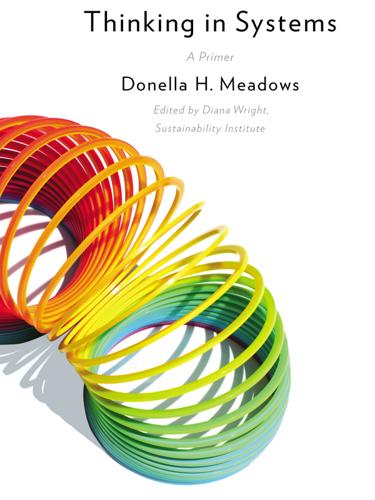
Thinking in Systems: A Primer
by
Meadows. Donella
and
Diana Wright
Published 3 Dec 2008
The lower the desired state, the less discrepancy, and the less corrective action is taken. The less corrective action, the lower the system state. If this loop is allowed to run unchecked, it can lead to a continuous degradation in the system’s performance. Another name for this system trap is “eroding goals.” It is also called the “boiled frog syndrome,” from the old story (I don’t know whether it is true) that a frog put suddenly in hot water will jump right out, but if it is put into cold water that is gradually heated up, the frog will stay there happily until it boils. “Seems to be getting a little warm in here. Well, but then it’s not so much warmer than it was a while ago.”
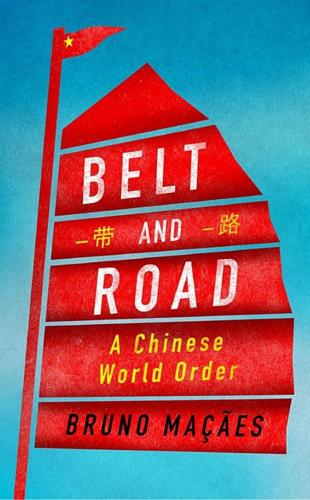
Belt and Road: A Chinese World Order
by
Bruno Maçães
Published 1 Feb 2019
“Germany Vetoes Chinese Purchase of Business Citing Security Grounds,” Wall Street Journal, July 26, 2018. 14. James McGregor, China’s Drive for ‘Indigenous Innovation’: A Web of Industrial Policies, Washington, DC: U.S. Chamber of Commerce, 2010. 15. Andrew Polk, “China Is Quietly Setting Global Standards,” Bloomberg, May 6, 2018. 16. Noah Barkin, “‘Boiled frog syndrome’: Germany’s China problem”, Reuters, April 15, 2018. 17. President Trump Announces Strong Actions to Address China’s Unfair Trade, Press Release, Office of the United States Trade Representative, March, 2018. 18. Minxin Pei, “Xi risks losing face in a trade war with Trump,” Nikkei Asian Review, July 9, 2018 19.

Evil by Design: Interaction Design to Lead Us Into Temptation
by
Chris Nodder
Published 4 Jun 2013
Netflix details: “Global Internet Phenomena Report: Fall 2011.” Sandvine (sandvine.com). December 2012. Retrieved January 2013. Qwickster quote: Jason Gilbert. “Qwickster Goes Qwickly: A Look Back At A Netflix Mistake.” Huffington Post (huffingtonpost.com). October 10, 2011. Retrieved January 2013. Boiled frog anecdote is false: “Boiled Beef.” (Snopes.com). January 12, 2009. Facebook comic: © Matthew Inman, The Oatmeal (theoatmeal.com). Use metaphysical arguments to beat opponents Intelligent design: Strictly, intelligent design is seen by its proponents as a form of “evidence-based scientific theory,” but it does require the acceptance of certain supernatural explanations (theistic science) that are not necessarily testable using regular scientific methods.
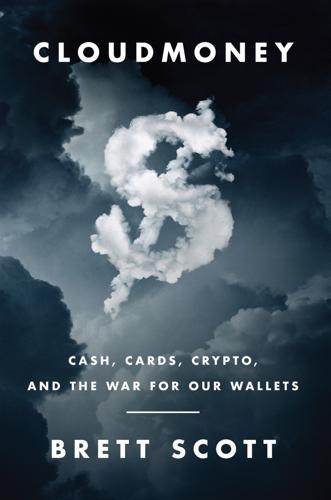
Cloudmoney: Cash, Cards, Crypto, and the War for Our Wallets
by
Brett Scott
Published 4 Jul 2022
Morgan, 8, 96, 150, 156, 227, 232 Jamaica, 42 Japan, 18, 35, 135, 215, 248 Johannesburg, South Africa, 129 Johnson, Alexander Boris, 38 Kazakhstan, 11, 227–9, 233, 247 Keep Cash UK, 262 Kelly, Kevin, 12 Kentridge, William, 144 Kenya, 47, 75, 129, 130–31, 169, 178, 179 Kerouac, Jack, 173, 175 Keynesianism, 80 ‘Kindness is Cashless’, 40 Kiva, 238 Kowloon Walled City, Hong Kong, 216, 219, 220, 226 Kuala Lumpur, Malaysia, 60, 74 Kurzweil, Ray, 153, 252–3 Kyoto, Japan, 135 La Guardia Airport, New York, 128 learning methodology, 163–4 left-wing politics, 7, 184, 191, 211–12, 215 Lehman Brothers, 17–18 Lenddo, 169 Level 39, Canary Wharf, 17, 20, 27, 41, 143 Leviathan (Hobbes), 177 leviathans, 177–84, 215–16 libertarianism, 7, 14, 42, 155, 156, 184 cryptocurrency and, 191, 212, 215–16, 225–6 Libra, 236–41, 245 Litecoin, 218 Lloyds, 72–3, 144, 146 loans, 70–71, 107, 159 artificial intelligence and, 167–8, 172 London, England, 128, 247, 248 Brixton Market, 177 Camberwell, 128 Canary Wharf, 17–18, 20, 41, 62, 211 City of London, 6, 135 Mayor’s Fund, 38 Somali diaspora, 116, 179 Stock Exchange, 24 Underground, 11, 37–8, 86, 87 longevity derivatives, 160 Lonsdale, Joe, 155 Lord of the Rings, The (Tolkien), 19, 155 Los Angeles, California, 101 Luther, Martin, 212 M-Pesa, 79, 109 machine-learning systems, 163–4 Macon, USS, 153 Mafia, 163 Main Incubator, 143 Malaysia, 7, 45, 60, 74 Malick, Badal, 127–8 malware, 32 manifest destiny, 212 ‘Manifesto for Cashlessness’ (Emili), 37 Maputo, Mozambique, 96 Marcus, David, 237, 241 Maréchal, Nathalie, 113 marijuana industry, 101–3 market price, 29, 171 markets, 65, 124–6, 176–80 choice and, 124–6 giant parable, 54 informal, 176–9 oligopolies and, 124–5 payments companies and, 29, 30, 31, 32–3 Marxism, 155, 262 Massachusetts, United States, 46 Massachusetts Institute of Technology (MIT), 7 Mastercard, 30, 37, 39, 77, 91 automatic payments, 149 data, 109, 111 financial inclusion and, 131–2 Wikileaks blockade, 116 Masters, Blythe, 232 Matrix, The (1999 film), 226 Mayfair, London, 6 McDonald’s, 145, 153 Medici family, 135 Melanesia, 255–6 Mercy Corps, 131, 132 Mexico, 42 Microsoft, 7 Azure cloud, 233 Word, 32, 156 middle class, 86, 128, 129 Mighty Ducks, The (1992 film), 234 Military Spouse, 153 millennials, 86, 140 Minority Report (2002 film), 10 mis-categorisations, 167 mist, 30–33 MIT Media Lab, 7 Modi, Narendra, 43, 93 Moffett airfield, California, 153 Monetarism, 80 money creation, 59–63, 67–72, 202 Money Heist (2017 series), 61 money laundering, 42, 116 money users vs. issuers, 50–52 money-passers, 30, 32–3 Monzo, 113, 142 Moon Express Inc., 153 mortgages, 26–7, 94 motor cortex, 248 Mountain View, Silicon Valley, 153 Moynihan, Brian, 38 Mr Robot, 184 Mubarak, Hosni, 116 Mugabe, Robert, 239–41 Mumbai, India, 96 Musk, Elon, 15, 212, 257 mutual credit systems, 259–60 N26, 142 Nairobi, Kenya, 129, 179 Nakamoto, Satoshi, 13, 184–5, 187, 191, 204 NASDAQ, 157, 233 National Aeronautics and Space Administration (NASA), 153 National Arts Festival, 144 National Retail Federation, 86 National Security Agency (NSA), 112, 155 Nationwide, 145–6 Natural Language Processing (NLP), 146 natural market order, 192 Nazarbayev, Nursultan, 227 Neener Analytics, 169 neo-Nazism, 226 nervous system, 20–22, 57, 80, 81, 240, 247–8, 251–2 Nestlé, 24, 28 Netflix, 61 Netherlands, 48, 49, 128–9 Nets Union Clearing Corp, 115 Network Computing, 78 New Age spiritualism, 7, 14, 193, 226 New Jersey, United States, 46 New Scientist, 137 New World Order, 261 New York City, New York, 18, 91–2, 128, 248 La Guardia Airport, 128 Wall Street, 6, 178–9 Nigeria, 43 No Cash Day, 37 no-file clients, 169 Nobel Prize, 93 nomadism, 228 non-seepage, 73 Norway, 35 nudging, 39, 93, 114 Nur-Sultan, Kazakhstan, 11, 227–9 O’Gieblyn, Meghan, 154 Oakdale, California, 101 Occupy movement (2011–12), 211, 215 Office of National Statistics, 83 oil industry, 6, 22–4 oligopolies, 2, 12, 15, 89, 124–5, 142, 151, 180–83, 191 cryptocurrencies and, 229–33, 246 On the Road (Kerouac), 173, 175 OpenBazaar, 229 OpenOil, 24 operating system, 141–2 Oracle, 109 Oxford English Dictionary, 144 Pakistan, 61 Palantir, 155, 157, 226 Panama Papers leak (2016), 81 panopticon effect, 118–19, 172 Papua New Guinea, 191 passive process, 125–6 PATRIOT Act (2001), 111, 179 payments companies, 30, 32–3, 39–41, 77–8, 79 automatic payments, 149 data, 108–9 interpellation, 86–7 plug-ins, 79, 115, 141–2 PayPal, 50, 79, 109, 155, 226, 233–7, 243 New Money campaign (2016), 86–7 Wikileaks blockade, 116 Payter, 31–2 Paytm, 44, 79, 150 Peercoin, 218 Penny for London, 37–8 pension funds, 7, 23 People’s Bank of China, 79, 242 periphery, 28, 248 Peru, 129–30, 176 Peter Diamandis, 153 Philadelphia, Pennsylvania, 41, 133 Pierce, Brock, 234 Piercy, Marge, 150 Pisac, Peru, 129 point-of-sales devices, 40, 77, 130 points of presence, 148 poker games, 91 Poland, 37, 91 police, trust in, 93 Politics of Bitcoin, The (Golumbia), 225 posture, 49 pre-capitalist societies, 55, 215, 251 Premier League, 231 primary system, 50–64 Privacy International, 168 privacy, 2, 43, 44, 46, 47, 104–19 private blockchains, 229, 231 Prohibition (1920–33), 102 promises, 50, 52, 58–9, 61, 70–72, 205–6, 259–60 casino chips, 68–9 deposits as, 69 digital money, 70–72 giant parable, 52–6, 63–4, 188 loans, 70–71, 107, 159 mutual credit systems, 259–60 Promontory Financial Group, 38 Protestantism, 212, 255 psilocybin, 226 psychometric testing, 169 pub quizzes, 91 Pucallpa, Peru, 130, 176, 249 Puerto Rico, 234 Quakers, 135 Quechuan people, 129 Quorum, 232 R3, 233 RAND Corporation, 105 re-localisation, 259 re-skinning, 16, 135–51, 171, 175 Red Crescent, 131 refugees, 131–2 Reinventing Money conference (2016), 31 remittances, 105, 116 Revolut, 140, 142 right-wing politics, 7, 14, 184, 191–3, 211–12, 215, 225–6, 261 rippling credit, 260 risk-adjusted profit, 94 Robert Koch Institute, 34 robotics, 11 Rogoff, Kenneth, 47, 92–3 rolling blackouts, 247 Roman Empire (27 BCE–395 CE), 55–6 Romeo and Juliet (Shakespeare), 29, 30, 32 Rowe, Paulette, 38 Royal Bank of Canada, 158 Royal Bank of Scotland, 62 Russia, 6, 42, 48, 140, 227 Samsung, 11 San Francisco, California, 35, 46, 119, 133, 179, 247 Sān people, 4 Santander, 38 Sardex system, 259 Satoshi’s Vision Conference, 215 Save the Children, 131 savers, 25 Scott, James, 228 seasteading, 156, 216 secondary system, 50, 63–4 self-service, 145–6 SEPA, 80 September 11 attacks (2001), 111 Serbia, 7 sex workers, 96 Shakespeare, William, 29 Shanghai, China, 18, 115, 248 Shazam, 180 Sherlock Holmes series (Doyle), 114, 162, 165, 166 Shiba Inu, 13 Shipibo-Conibo people, 130 Sikoba, 260 Silicon Valley, 7, 9, 139–41, 148, 153, 180, 221 Libra, 237 Singularity, 154–6, 252–3 Silk Road, 227, 229 Singapore, 11, 18, 168, 248 Singularity, 153–6, 226, 252, 252–3 Singularity University, 153–6, 252–3 six degrees of separation theory, 260 skyscrapers, 17–20, 27, 253 slow-boiling frogs, 104 smart cities, 11, 180 smart contracts, 220–24, 258 smart homes, 180 smartphones, 4, 28 financial inclusion and, 95 posture and, 49 Smith, Adam, 251 smoking, 181 Snow Crash (Stephenson), 10 social class, 91–9, 113, 128, 129, 155, 167 Somalia, 116, 179 South Africa, 3–4, 11, 28, 55, 62, 128, 175–6 apartheid, 95 hut tax, 55 National Arts Festival, 144 rolling blackouts, 247 syncretism in, 175–6 South Sudan, 105 Spiegel, Der, 112 Spotify, 166 spread-betting companies, 26 stablecoins, 233–41, 245–6, 255 Standard Bank, 95, 144 states, 42–5, 50–64, 176–85, 215 anti-statism, 42, 184, 215–16 base money, 69 centralisation of power, 15, 180–83 cryptocurrency and, 215 data surveillance, 110–12, 114–15, 155, 168 digital currencies, 242–5 expansion and contraction, 57–8 giant parable, 52–6, 63–4 markets and, 176–80 money issuance, 58–9 primary system, 50, 51, 63 Stockholm syndrome, 121, 131 sub-currencies, 72–3 sub-prime mortgages, 26–7, 94 subsidiary companies, 24, 26–7 Sufism, 91 suits, 124 Sunset Boulevard, Los Angeles, 101 Super Bowl, 8, 261 super-system, 3 supply, 29 surveillance, 2, 7, 8, 10, 15, 33, 39, 42, 72, 104–19, 153–72, 180, 250 artificial intelligence and, 153–72 banking sector and, 108–9 Big Brother, 113–15 CBDCs and, 244, 245 panopticon effect, 118–19, 172 payments censorship, 116–18 predictive systems, 105 states and, 110–12, 114–15, 168 Suspicious Activity Reports (SARs), 111 Sweden, 35, 43, 48, 84, 121 Sweetgreen, 91, 93 SWIFT, 32, 75–6, 80, 108, 112 Switzerland, 35, 108 Symbiosis Gathering, 101 syncing, 195–7, 200–202, 231 syncretism, 175–6 systems failures, 32, 34, 48 Szabo, Nick, 220 Taiwan, 234, 235 Tala, 169 taxation, 55, 57, 110 evasion, 42, 43, 45, 46 TechCrunch Disrupt, 130 Tencent, 2, 7, 114, 178 terrorism, 42, 48, 112, 127 Tether, 234–5, 241 Thaler, Richard, 93 Thatcher, Margaret, 193 Thiel, Peter, 155, 226 thin-file clients, 169 timelines, 197–200 Times of India, 44 tobacco, 181 Tokyo, Japan, 18, 215, 248 Tracfin, 112 transfers, 74–8 transhumanism, 180 Transport for London, 11, 37–8, 86, 87 Transylvania, 65 Trustlines, 260 Twitter, 167, 198 Uber, 2, 149, 177, 179, 237 Uganda, 168 unbanked, 35, 94, 181, 238 underdog, support for, 106 Unilever, 99, 131 United Kingdom American Revolutionary War (1775–83), 60 banking oligopoly, 230 Canary Wharf, 17–18, 20, 41, 62, 211 cash use in, 249 City of London, 6, 135 colonialism, 55, 97, 175–6, 178, 239 digital money system in, 72 GCHQ, 112 HMRC, 110 Premier League, 231 Royal Mint, 60 Somali diaspora, 116, 179 Taylor Review (2016–17), 110 Transport for London, 11, 37–8, 86, 87 United Nations, 14 blockchain research, 222 Capital Development Fund, 37 World Food Programme, 132 United States cash use in, 41, 46, 133 CBDCs and, 244–5, 254 Central Intelligence Agency (CIA), 155 China, relations with, 74–5, 245, 255 data surveillance, 111–12, 155 dollar system, 80, 182, 210, 233–6, 239, 240 Federal Bureau of Investigation (FBI), 111, 155 Federal Reserve, 32, 35, 36, 234 Financial Crimes Enforcement Network, 111 hurricanes in, 36 leviathan complex, 178 marijuana industry, 101–3 NASA, 153 National Security Agency (NSA), 112, 155 Occupy movement (2011–12), 211, 215 PATRIOT Act (2001), 111, 179 Prohibition (1920–33), 102 Revolutionary War (1775–83), 60 Senate, 105–6 September 11 attacks (2001), 111 Singularity University, 153–6 Super Bowl, 8, 261 Wall Street, 6, 178–9 Uruguay, 42 USAID, 45, 127, 178, 179, 245 vending machines, 31–2, 220 Venmo, 79, 243 Ver, Roger, 212, 214, 215 Vienna, Austria, 7 virtual reality, 10 Visa, 15, 30, 31, 37, 39, 40, 41, 44, 77, 80, 127, 174, 255 automatic payments, 149 data, 108, 109, 111, 112 plug-ins, 142 USAID and, 128, 178, 245 Wikileaks blockade, 116 VisaNet, 77 Wall Street, New York City, 6, 178–9 Occupy movement (2011–12), 211, 215 Wall Street (1987 film), 8 Wall Street Journal, 133 Warner, Malcolm, 106 WarOnCash, 37 Weber, Max, 179 WeChat, 79, 109, 114–15, 150 welfare, 43, 113, 118 Wells Fargo, 109, 234, 235 WhatsApp, 75, 198, 237–8, 244, 255 Wikileaks, 116, 183 Wilson, Cody, 216 Winton Motor Carriage Company, 87, 90 Wired, 12 World Economic Forum, 11 World Food Programme, 132 World Health Organisation (WHO), 34 World of Warcraft (2004 game), 234 Xhosa people, 175–6 YouTube, 163, 166, 167, 170 Zambia, 131 Zimbabwe, 11, 239–41, 245 Zuckerberg, Mark, 241 About the Author BRETT SCOTT is an economic anthropologist, financial activist, and former broker.

Sex on the Moon: The Amazing Story Behind the Most Audacious Heist in Histroy
by
Ben Mezrich
Published 11 Jul 2011
He’d obviously just come from the NBL deck, though they had both gotten out of the water at the same time almost an hour ago. “I haven’t heard anything. I’ve been in the shower—” “You look like you just stepped out of a pizza oven. You never heard the story about the frog and the pot of water—you know, he doesn’t realize he’s boiling until it’s too late?” “Is that the news? They’re boiling frogs over in the NBL?” Brian shook his head, stepping all the way into the locker room. “You’re not gonna believe it. Someone stole six hundred pounds of moon rocks.” Thad’s stomach dropped. He was glad he was sitting down. He was also glad that his skin was still bright red from the hot water, because he was certain that otherwise, his cheeks would have turned as pale as Rebecca’s.
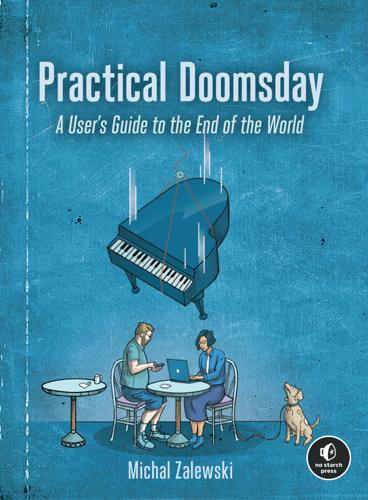
Practical Doomsday: A User's Guide to the End of the World
by
Michal Zalewski
Published 11 Jan 2022
Similarly, if your plan doesn’t pick a specific destination to evacuate to, you may end up sleeping in the car or staying at a noisy and crowded shelter for weeks. Identifying Indicators and Decision Points If there’s one metaphor that comes to mind when reading almost every single firsthand account of a slow-simmering crisis, it’s the parable of the boiling frog: when every hour, every day, or every week is only a tiny bit worse than the one before it, humans find it extremely difficult to draw the line and take decisive action before it’s too late. The desire to “wait and see” is how people perish in wildfires, end up on on the roofs of submerged homes, or fall prey to murderous regimes that, after years of dehumanizing their enemies, finally progress to genocide.
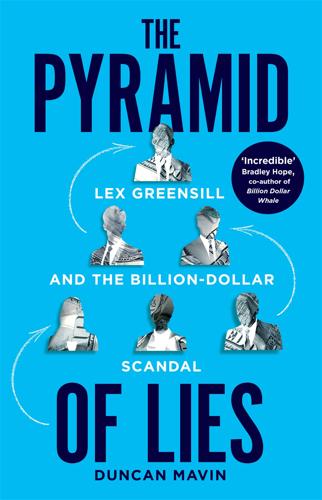
The Pyramid of Lies: Lex Greensill and the Billion-Dollar Scandal
by
Duncan Mavin
Published 20 Jul 2022
If he had been so unhappy, why wait for so long, letting Haywood build such a big position with Greensill before kicking off? The answer to that, of course, was that Sheard had been raising his concerns all along, but no one had been listening. And besides, the scale of the Greensill investments had started off small and only grown incrementally. Haywood’s Greensill investments were like a slowly boiling frog. He spent most of the next few months working from home to avoid the antagonism. But in February, Sheard was in the office when a colleague dropped a couple of pages on his desk. They were critical documents that left Sheard dumbfounded. Haywood, working from home, appeared to have accidentally sent them to the office printer.

Among the Mosques: A Journey Across Muslim Britain
by
Ed Husain
Published 9 Jun 2021
We were so respectful of the authors of these commentaries and books that we wouldn’t turn the book to read the commentary, we would physically get up and move around the book. When you’ve been in that system since age eleven you can’t change, you don’t see anything critically. How does such a mind criticise anything? It’s like the boiling frog effect,’ he adds. If a frog is put suddenly into hot, boiling water, it will jump out. But of the frog is put in lukewarm water, which is then boiled slowly, the frog will not feel the danger and will be cooked to death. ‘You can’t tell what is happening until it is too late.’ ‘What can be done to change these places?’
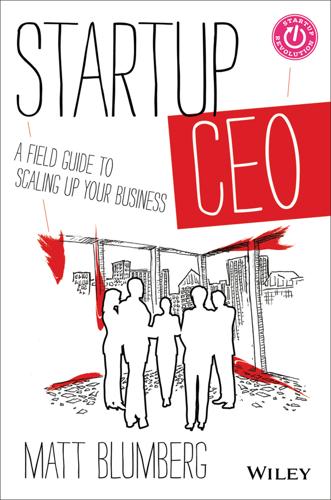
Startup CEO: A Field Guide to Scaling Up Your Business, + Website
by
Matt Blumberg
Published 13 Aug 2013
BOILING THE FROG It’s an old story, most likely apocryphal, but every management consultant in the world has told it a couple hundred times: If you throw a frog into a pot of boiling water, it will leap right back out. If you put a frog in a pot of water on the stove and then heat it up to boiling, you’ll “boil the frog” because it doesn’t realize that it’s being very slowly cooked until it’s too late. We’ve boiled frogs at Return Path more than once. In one case, we let a staffing problem sneak up on us in a critical department. We were short one person in accounting and business operations and we decided to control costs by going without the extra person for a month or two. Then, another person in the group unexpectedly left.
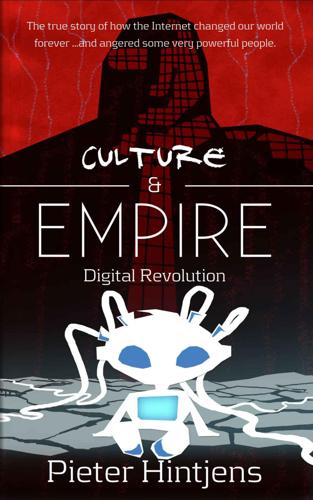
Culture & Empire: Digital Revolution
by
Pieter Hintjens
Published 11 Mar 2013
He told us in December 2005 that the NSA and DIA (another three-letter agency I'll come back to in the last chapter were spying on US citizens, something that was, and still is, illegal. The NSA then fired him, and rebuffed his claims. Today, we have corroboration of what he said, from Snowden and indeed from the NSA themselves. On June twentieth 2013, on the Boiling Frogs podcast, Tice went much further, saying: [The NSA] went after high ranking military officers. They went after members of congress. The Senate and the House -- especially on the intelligence committees, and on the armed services committees and judicial. But they went after other ones too. They went after lawyers and law firms.
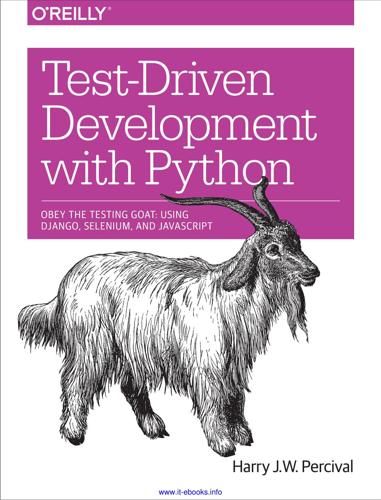
Test-Driven Development With Python
by
Harry J. W. Percival
Published 10 Jun 2014
Like a kata in a martial art, the idea is to learn the motions in a controlled context, when there is no adversity, so that the techiques are part of your muscle memory. It seems trivial now, because we’ve started with a very simple example. The problem comes when your application gets complex—that’s when you really need your tests. And the danger is that complexity tends to sneak up on you, gradually. You may not notice it happening, but quite soon you’re a boiled frog. 36 | Chapter 4: What Are We Doing with All These Tests? www.it-ebooks.info There are two other things to say in favour of tiny, simple tests for simple functions: Firstly, if they’re really trivial tests, then they won’t take you that long to write them. So stop moaning and just write them already.
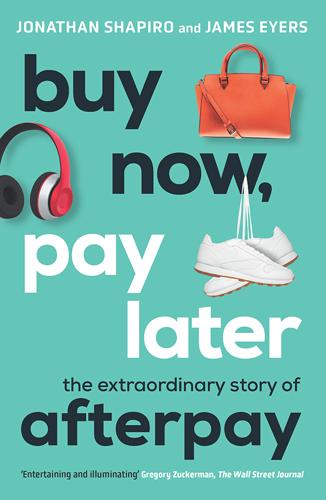
Buy Now, Pay Later: The Extraordinary Story of Afterpay
by
Jonathan Shapiro
and
James Eyers
Published 2 Aug 2021
Interest rates had been low for a long time. In the United States, low interest rates had aided the long, slow recovery from the depths of the 2008 financial crisis. But just like in 1999, they were moving higher as Federal Reserve chairman Jerome Powell tried to get ahead of an economy that might yet run hot. As for the proverbial boiling frog, the heat was being turned up so gradually it was hard to perceive. But at any minute investors could leap out of the market. In October 2018, global stock markets began to buckle as bond rates edged higher. Tech stocks that had been bid higher in an environment of low rates were dumped. Australian stocks, which this time did not exclude Afterpay, were caught in the selling.

All the Light We Cannot See: A Novel
by
Anthony Doerr
Published 6 May 2014
Nothing seems different at all. A line comes back to Marie-Laure from Jules Verne: Science, my lad, is made up of mistakes, but they are mistakes which it is useful to make, because they lead little by little to the truth. Etienne laughs as though to himself. “Do you remember what Madame said about the boiling frog?” “Yes, Uncle.” “I wonder, who was supposed to be the frog? Her? Or the Germans?” Volkheimer The engineer is a taciturn, pungent man named Walter Bernd whose pupils are misaligned. The driver is a gap-toothed thirty-year-old they call Neumann One. Werner knows that Volkheimer, their sergeant, cannot be older than twenty, but in the hard pewter-colored light of dawn, he looks twice that.

Finding Community: How to Join an Ecovillage or Intentional Community
by
Diana Leafe Christian
Published 14 Jun 2007
When asked at a Peak Oil conference in 2005 about what can be done, Heinberg replied,“Start an ecovillage!” These changes are not going to happen overnight. James Howard Kunstler, author of The Long Emergency, calls the coming energy decline a “long emergency” because it is occurring almost too gradually for most of us to register.The energy decline is often compared to the metaphor about boiling frogs: if you want to cook frogs and you put them in boiling water, they will immediately hop out, but if you put frogs in room-temperature water and only gradually turn up the heat, the frogs will stay in the water — not noticing it’s gradually getting warmer — and slowly cook to death. We could say this is happening to our civilization at large.

On the Wrong Line: How Ideology and Incompetence Wrecked Britain's Railways
by
Christian Wolmar
Published 29 May 2005
Big projects, such as the complete renewal of the trackwork at Leeds station with the provision of four new platforms, can generate £100m in compensation payments while a similar but more limited scheme at Manchester cost Railtrack £50m in payments to operators. These are big numbers, principally paid out of public funds. But precisely because the money was fed through from the Treasury, Railtrack did little about trying to change this ridiculous situation. Roger Ford has developed the concept of ‘boiling frogs’ to describe what has happened to costs on the railway. If you throw a frog into hot water it will attempt to escape. But if you place it in cold water which is then brought up to the boil the frog does not notice it warming up and quietly boils to death. Similarly, the powers that be would have been appalled had railway costs suddenly jumped from the 1995 figure to the 2005, but because the increase has been gradual the alert has never really been sounded.
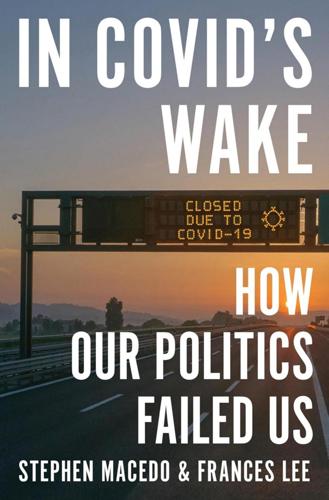
In Covid's Wake: How Our Politics Failed Us
by
Stephen Macedo
and
Frances Lee
Published 10 Mar 2025
By not specifying goals, policymakers and elected officials can avoid conflict over ultimate objectives. Finally, the failure to specify the goals of pandemic policy trapped policymakers in a quicksand of ongoing closures. Reopening could not happen until it was “safe.” But what constituted safety? Not unlike the allegory of the slow-boiling frog, restrictions persisted and harms compounded gradually. Short of Covid’s elimination, it was never g oing to be possible for officials to declare victory and reassure the public that they w ere just as safe as they had been in 2019. Th ere was never any af- Pa y A n y P r i c e 201 firmative decision to close schools for e ighteen months.

This Is How They Tell Me the World Ends: The Cyberweapons Arms Race
by
Nicole Perlroth
Published 9 Feb 2021
If once you get over there, you’re given two folders, that’s a red flag. If you’re considering taking a contract for a lot of money overseas, you’re probably not taking the job you think you’re taking.” It struck me as a uniquely American naïveté, Evenden’s initial trust in CyberPoint. It was like the story of the slowly boiling frog who fails to realize his peril until it’s too late; I knew the damage had already been done. Evenden was too late. The frog had already boiled. CHAPTER 12 Dirty Business Boston, Massachusetts “I always said when this business got dirty, I’d get out,” Adriel Desautels told me late one summer evening in 2019.